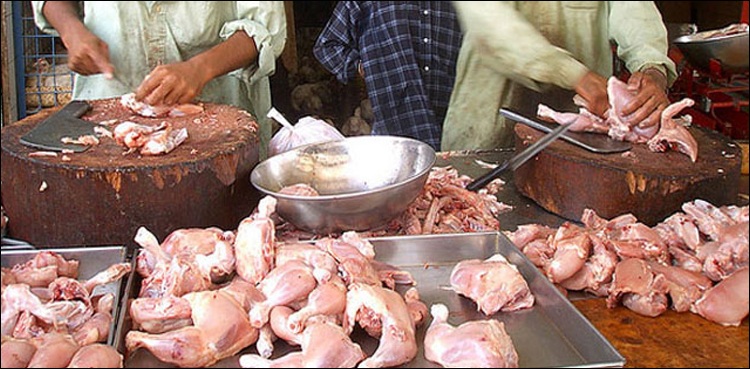
KARACHI: A respiratory disease similar to the coronavirus is rapidly spreading among chicken across the country, ARY News reported on Thursday.
As per details, a disease called ‘infectious coryza has spread in poultry farms across Pakistan and a number of poultry farms in Karachi have been closed after the disease.
Chairman Consumer Association Pakistan Kokab Iqbal talking to ARY News programme Bakhbar Savera said the disease is similar to coronavirus disease in which chicken have common cold and respiratory problems.
Recalling the past, he said that chicken was hit was bird flu and “Ranikhet” disease in the past too, which brought their prices recorded a massive decline.
He urged the masses to get them safe from the disease and adopt precautionary measures in this context. Replying to a question, Kokab Iqbal said that they are receiving reports about the spread of the disease in the United States, but not as much across Pakistan.
Read more: Inquiry reveals why chicken, egg prices went up in Pakistan
It must be mentioned that poultry retail prices have increased over the past week, and chicken meat was being sold between Rs520-600 per kg.
What is Infectious Coryza in Chickens?
Infectious coryza is an acute respiratory disease of chicken characterized by decreased activity, nasal discharge, sneezing, and facial swelling that occurs worldwide.
The disease apparently affects only chicken; reports in quail and pheasants likely describe a similar disease caused by a different bacterium.
In countries such as the US, the disease is seen primarily in pullets and laying hens and occasionally in broilers. In lower- and middle-income countries, the disease often is seen in very young chicks (eg, 3 weeks old).
Inadequate biosecurity practices and environmental factors may contribute. Infectious coryza is not a zoonotic disease (transferable to humans) and thus lacks public health importance.
The post Respiratory disease spreading among chicken appeared first on ARY NEWS.
from ARY NEWS https://ift.tt/34jJFxR
via IFTTT



No comments:
Post a Comment